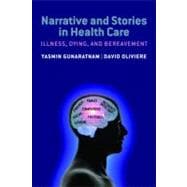
Note: Supplemental materials are not guaranteed with Rental or Used book purchases.
Purchase Benefits
What is included with this book?
| Foreword | p. vii |
| Acknowledgements | p. ix |
| List of contributors | p. xi |
| Introduction | p. 1 |
| Concepts and approaches | |
| Narrative machinery | p. 17 |
| The possibilities of narrative palliative care medicine: 'Giving Sorrow Words' | p. 33 |
| Narrative interviews and research | p. 47 |
| Narrative-based evidence in palliative care | p. 63 |
| Therapeutic writing: 'writing is a way of saying things I can't say' | p. 79 |
| Services and care | |
| Narrative, story, and service evaluation - patients' stories and their consequences | p. 95 |
| Narrative and storytelling in palliative care education and training | p. 111 |
| Patient and carer narratives and stories | p. 127 |
| Mediator deathwork | p. 143 |
| Working with Patients and Carers | |
| The necessity and dangers of illness narratives, especially at the end of life | p. 161 |
| Life story and life review | p. 177 |
| The meaning of illness and symptoms | p. 193 |
| Spiritual care and attentiveness to narrative | p. 207 |
| Bereavement, children, and families | p. 221 |
| Afterword | p. 237 |
| Index | p. 239 |
| Table of Contents provided by Ingram. All Rights Reserved. |
The New copy of this book will include any supplemental materials advertised. Please check the title of the book to determine if it should include any access cards, study guides, lab manuals, CDs, etc.
The Used, Rental and eBook copies of this book are not guaranteed to include any supplemental materials. Typically, only the book itself is included. This is true even if the title states it includes any access cards, study guides, lab manuals, CDs, etc.